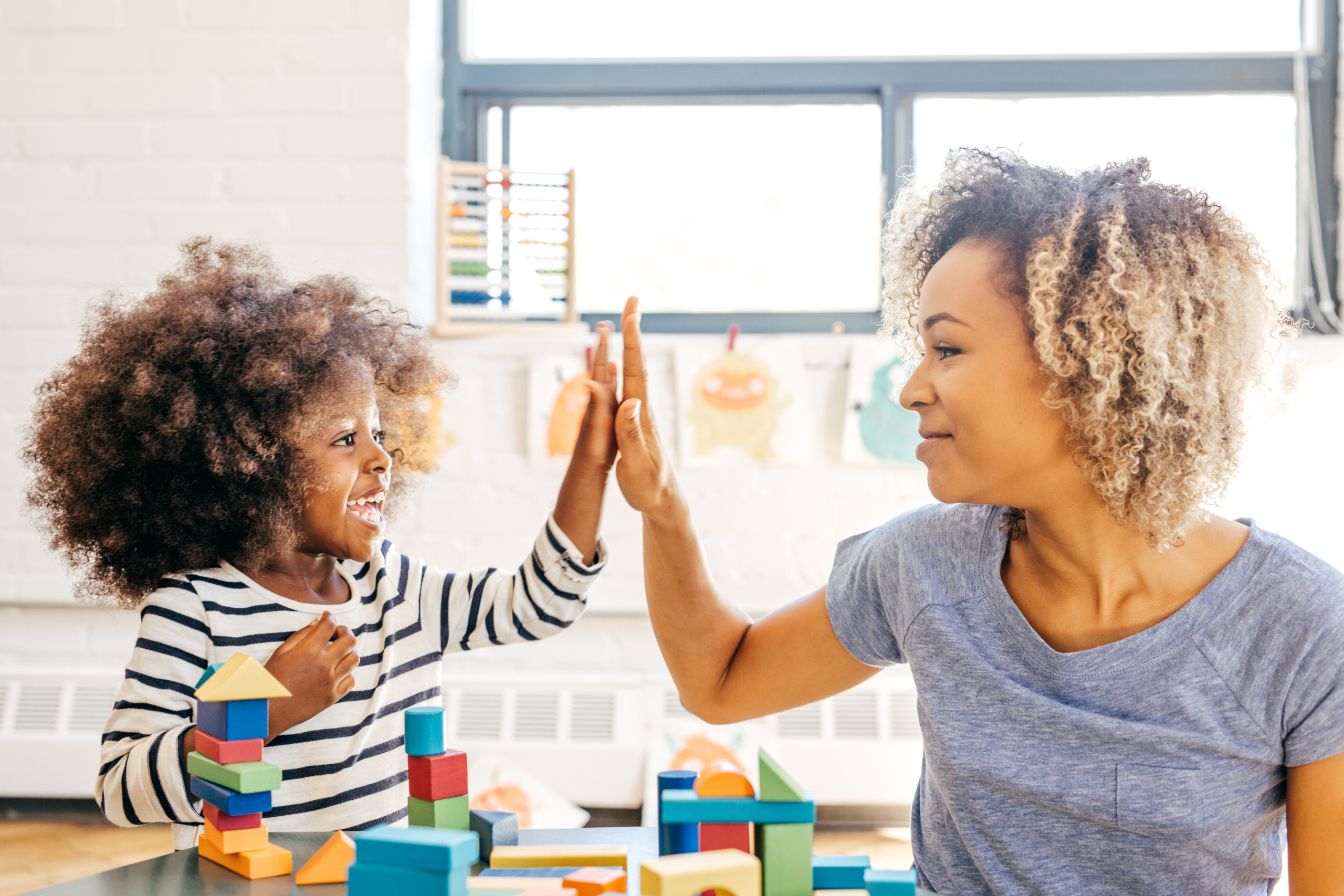Studies that have examined the psychological flexibility of parents have discovered that high levels of parental psychological flexibility result in these parents’ children experiencing fewer internalizing and externalizing problems throughout their development (Brassell et al., 2016). Psychological Flexibility refers to the ability of an individual to accept aversive emotional experiences in the moment while maintaining engagement in value-based behaviors (Brassell et al., 2016). Children will model their parent’s behavior whether the behavior is good or bad (Krisbergh, 2019). Here are some ways to keep yourself in check and be a good role model for your children.
Walk the Talk: Children gain the most from parents who demonstrate consistency between their actions and their values. For example, set screen time limits for the whole family!
Practice Mindfulness in all interactions with your child by engaging in the following:
- Listen with full attention
- Use nonjudgmental acceptance of yourself and your child
- Be emotionally aware of yourself and your child
- Use self-regulation in the parenting relationship
- Show compassion for yourself and your child
(Duncan et al., 2009)
Be intentional with your language: Children are sponges and hear how and what you say. The way you speak, what you speak about, and the opinions you express can influence your child’s values. Consider how you speak to your child, partner, friends, and strangers.
Consider…
- Tone of voice
- Inclusive instead of exclusive language
- Words indicating respect and acceptance
- How you speak to your children when you’re disciplining them
- What conversations look like when your child makes a mistake
Where can you begin?
- Include your children in family discussions that convey messages of teamwork, respect, and acceptance
- Practice what you preach
- Avoid making negative comments about your body and other people’s bodies
- Enjoy education and learning
- Be vulnerable with your children
- Admit mistakes and talk about what you learned from them
- Use problem-solving skills
- Show kindness and respect towards others
References
Brassell, A. A., Rosenberg, E., Parent, J., Rough, J. N., Fondacaro, K., & Seehuus, M. (2016). Parent’s psychological flexibility: Associations with parenting and child psychosocial well-being. Journal of Contextual Behavioral Science, 5(2), 111–120. https://www.doi.org/10.1016/j.jcbs.2016.03.001
Duncan, L. G., Coatsworth, J. D., & Greenberg, M. T. (2009). A model of mindful parenting: Implications for parent-child relationships and prevention research. Clinical Child and Family Psychology Review, 12(3), 255–270. https://www.doi.org/10.1007/s10567-009-0046-3
Krisbergh, A. (2019). Being a role model-the promise and the prevail. The Center for Parenting Education. https:///www.centerforparentingeducation.org/library-of-articles/focus-parents/role-model-promise-peril








